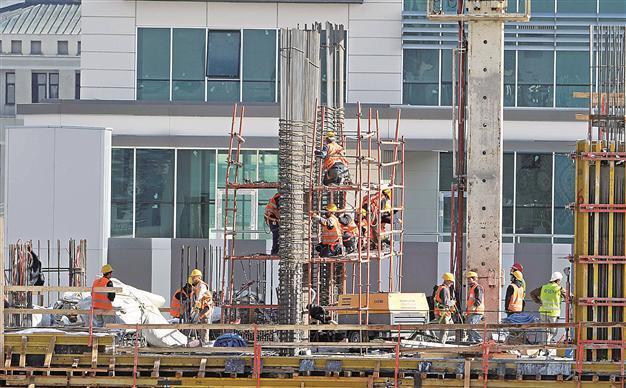Turkey has ‘huge potential’ to sell more properties to foreigners
Güneş Kömürcüler - ISTANBUL

Around 25,000 properties are sold to foreigners in Turkey annually, far below potential in a sector that builds around 700,000 properties every year, according to Haluk Sur, the head of real estate consultancy firm Cushman & Wakefield Turkey.
“Turkey needs to develop solid policies to lure foreign buyers who want to use their potential homes in Turkey for several weeks or months, rather than others who buy many properties just to sell on later or rent out,” Sur, who is also an executive board member of the Association of Real Estate Investment Companies in Turkey (GYODER), told the Hürriyet Daily News.
According to Sur, Turkey has the potential to sell around 60,000 properties to foreigners annually.
“There are no obstacles to Turkey reaching this volume. The country must, however, act very carefully on the road to achieving this goal … The sector needs to focus on selling properties to foreigners who will use them with their families or for themselves, rather than potential buyers who make huge volumes of acquisitions in order to create big price fluctuations in the market,” he warned.
There are potential foreign buyers who pay around $6,000 for one square meter and then sell it on for around $8,000, creating a balloon effect in the sector.
“Dubai faced this boom effect in the housing sector in 2008 and it still trying to normalize conditions … Acquisitions should spread to a wider geographical location at different price scales. When such a market is created, Turkey will be a very attractive market for foreigners,” he said.
Sur noted that there is currently an over-demand in Turkey from both local and foreign buyers.
“It is not right to concentrate on Istanbul too much for the sector. Other centers of attraction must be created. Actually, some cities elsewhere in the country have been developing rapidly, such as Bursa in the northwest, Antalya on the Mediterranean, İzmir on the Aegean, etc. … There are other centers that have a huge growth potential, including Gaziantep in the southeast or Kayseri in Central Anatolia. With the required infrastructure projects and employment opportunities, more people will opt to live in these cities,” he said.
The construction sector has been one of the drivers of Turkey’s growth in recent years, but attention among economists has turned to finding a new growth story in the country.
Sur stressed that Turkey needs to produce high-tech products to be able to create an economy with higher added value.
“This doesn’t mean that Turkey should halt its construction activities. Yes, the construction sector has grown rapidly over the last decade, but this also enabled several complementary manufacturing industries. While the local construction materials that Turkey exported were worth $1.5 billion in 2000, this figure has now increased to $25 billion,” he added.
“Turkey will not become a technology producing country overnight … Comprehensive programs must be developed in order to become a highly competitive technology-producing country, to be executed over 20 to 30 years, just as Germany, Japan, South Korea and Singapore did before,” Sur said.
He also predicted that Turkey would start to grow by around 4 percent in 2016.
 Around 25,000 properties are sold to foreigners in Turkey annually, far below potential in a sector that builds around 700,000 properties every year, according to Haluk Sur, the head of real estate consultancy firm Cushman & Wakefield Turkey.
Around 25,000 properties are sold to foreigners in Turkey annually, far below potential in a sector that builds around 700,000 properties every year, according to Haluk Sur, the head of real estate consultancy firm Cushman & Wakefield Turkey.